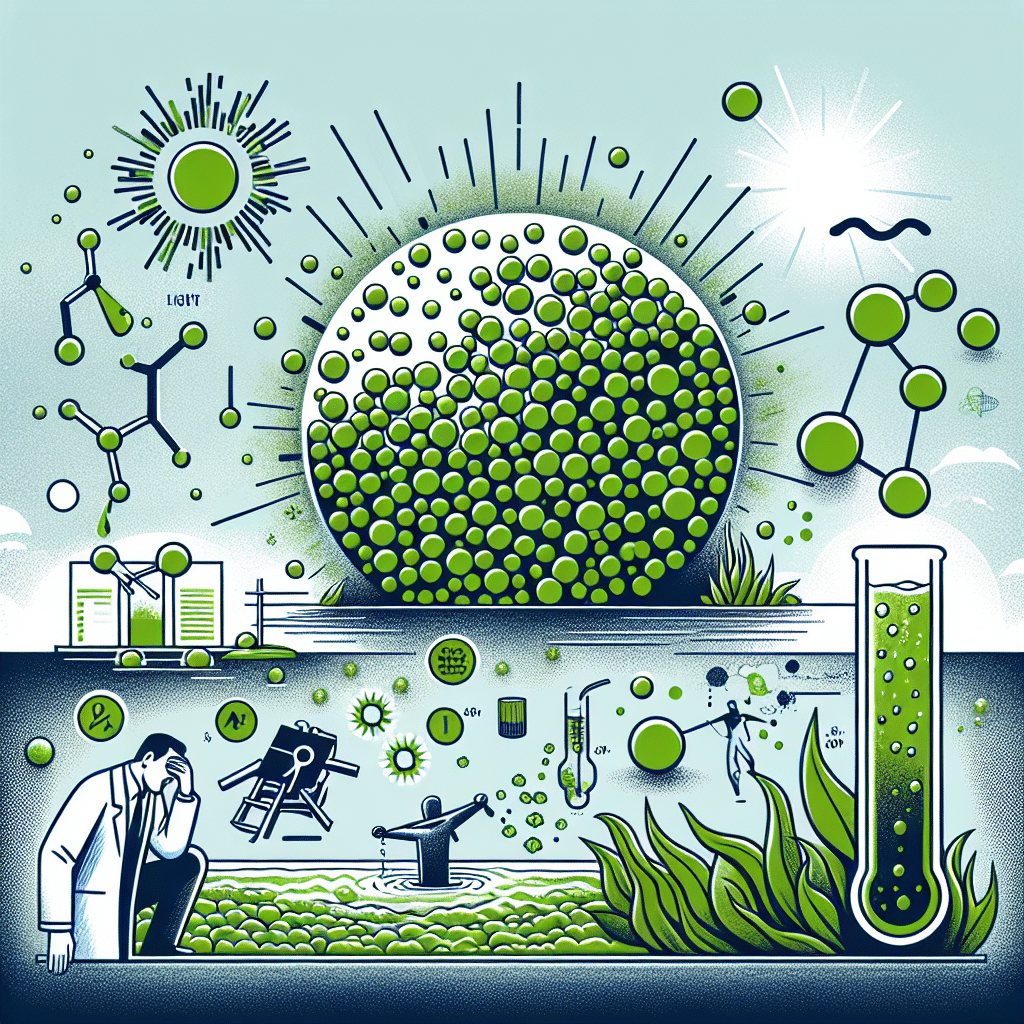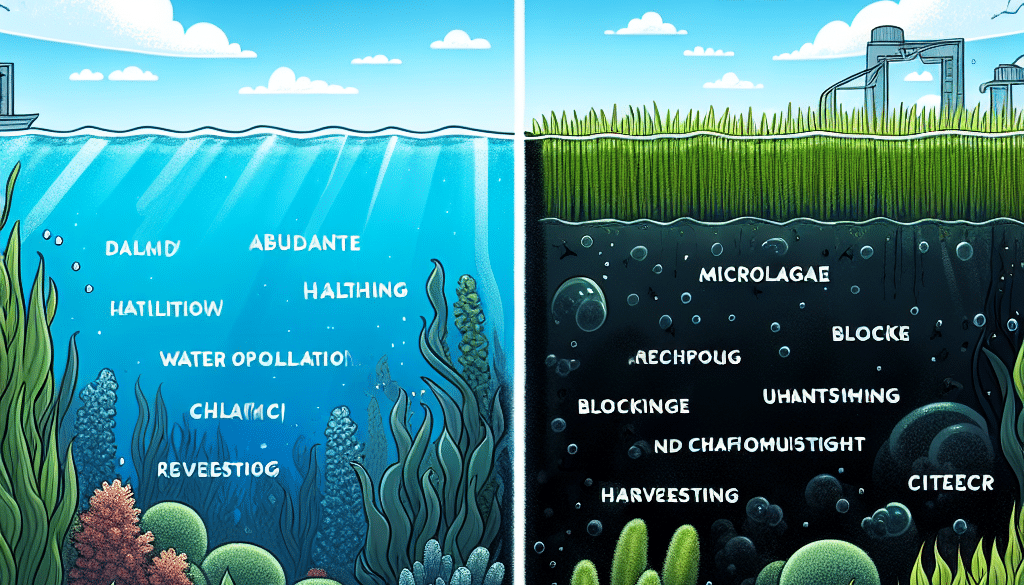What Is The Disadvantage Of Microalgae?
-
Table of Contents
- Microalgae: Exploring the Disadvantages of This Green Resource
- High Costs of Cultivation and Processing
- Scalability Challenges
- Environmental Impact Concerns
- Technical and Biological Limitations
- Market and Regulatory Hurdles
- Conclusion: Weighing the Pros and Cons of Microalgae
- Discover ETprotein’s Sustainable Protein Products
Microalgae: Exploring the Disadvantages of This Green Resource

Microalgae have been hailed as a promising solution for a variety of applications, from biofuel production to carbon sequestration and as a source of nutrition. However, despite their potential, there are several disadvantages associated with microalgae that must be considered. This article delves into the challenges and limitations of microalgae, providing a comprehensive overview of the drawbacks that accompany their use.
High Costs of Cultivation and Processing
One of the primary disadvantages of microalgae is the high cost associated with their cultivation and processing. Microalgae require specific conditions for optimal growth, including controlled temperatures, pH levels, and light exposure. The infrastructure needed to maintain these conditions can be expensive to build and operate. Additionally, the harvesting and processing of microalgae to extract useful products are energy-intensive and costly processes, which can limit the economic viability of microalgae-based industries.
- Expensive photobioreactors or large open ponds are needed for cultivation.
- Energy costs for maintaining growth conditions can be prohibitive.
- Harvesting and downstream processing require significant investment.
Scalability Challenges
Scaling up microalgae production to meet industrial demands poses significant challenges. While laboratory and pilot-scale cultures have shown promise, replicating these results on a commercial scale is not straightforward. Issues such as contamination, water usage, and maintaining consistent quality become more pronounced as production scales up.
- Contamination by other microorganisms can disrupt cultures.
- Large volumes of water are required, raising sustainability concerns.
- Consistency in quality and yield can be difficult to achieve at larger scales.
Environmental Impact Concerns
Although microalgae are often touted for their environmental benefits, there are potential negative impacts that must be considered. The cultivation of microalgae, especially in open ponds, can lead to water usage issues and the risk of invasive species if containment measures fail. Additionally, the energy required for cultivation and processing may offset some of the carbon reduction benefits if it is derived from non-renewable sources.
- Water usage for cultivation can strain local resources.
- Potential for invasive species if microalgae escape cultivation systems.
- Energy consumption for production may not always be sustainable.
Technical and Biological Limitations
Microalgae production is subject to various technical and biological limitations that can hinder its effectiveness. The rate of photosynthesis, susceptibility to environmental changes, and the complexity of extracting specific compounds from microalgae cells are all factors that can limit the utility and efficiency of microalgae-based systems.
- Photosynthetic efficiency is limited by light penetration in dense cultures.
- Microalgae are sensitive to environmental changes, affecting stability.
- Extraction of valuable compounds from microalgae can be complex and inefficient.
Market and Regulatory Hurdles
The market for microalgae-based products is still developing, and regulatory frameworks are often not well-established. This can create uncertainty for businesses looking to invest in microalgae technologies. Additionally, public perception and acceptance of microalgae-derived products, such as food additives or biofuels, can be a barrier to market entry and growth.
- Lack of established markets for microalgae products can deter investment.
- Regulatory uncertainty can slow down innovation and commercialization.
- Consumer acceptance of microalgae products is not guaranteed.
Conclusion: Weighing the Pros and Cons of Microalgae
In conclusion, while microalgae offer a range of potential benefits, there are significant disadvantages that must be addressed. The high costs of cultivation and processing, scalability challenges, environmental impact concerns, technical and biological limitations, and market and regulatory hurdles all present obstacles to the widespread adoption of microalgae-based solutions. As research continues and technology advances, it is crucial to find ways to mitigate these disadvantages to fully harness the power of microalgae.
Discover ETprotein’s Sustainable Protein Products
If you are looking for sustainable and high-quality protein alternatives, ETprotein offers a range of organic bulk vegan proteins that could be an excellent addition to your diet or product line. Their products, including various seed proteins and L-(+)-Ergothioneine, are produced with attention to quality, sustainability, and customer needs. Whether you are in the food and beverage industry or looking for nutritional supplements, ETprotein’s offerings may provide the solutions you need.
About ETprotein:
ETprotein, a reputable protein and L-(+)-Ergothioneine (EGT) Chinese factory manufacturer and supplier, is renowned for producing, stocking, exporting, and delivering the highest quality organic bulk vegan proteins and L-(+)-Ergothioneine. They include Organic rice protein, clear rice protein, pea protein, clear pea protein, watermelon seed protein, pumpkin seed protein, sunflower seed protein, mung bean protein, peanut protein, and L-(+)-Ergothioneine EGT Pharmaceutical grade, L-(+)-Ergothioneine EGT food grade, L-(+)-Ergothioneine EGT cosmetic grade, L-(+)-Ergothioneine EGT reference grade and L-(+)-Ergothioneine EGT standard. Their offerings, characterized by a neutral taste, non-GMO, allergen-free attributes, with L-(+)-Ergothioneine purity over 98%, 99%, cater to a diverse range of industries. They serve nutraceutical, pharmaceutical, cosmeceutical, veterinary, as well as food and beverage finished product distributors, traders, and manufacturers across Europe, USA, Canada, Australia, Thailand, Japan, Korea, Brazil, and Chile, among others.
ETprotein specialization includes exporting and delivering tailor-made protein powder and finished nutritional supplements. Their extensive product range covers sectors like Food and Beverage, Sports Nutrition, Weight Management, Dietary Supplements, Health and Wellness Products, and Infant Formula, ensuring comprehensive solutions to meet all your protein needs.
As a trusted company by leading global food and beverage brands and Fortune 500 companies, ETprotein reinforces China’s reputation in the global arena. For more information or to sample their products, please contact them and email sales(at)ETprotein.com today.














